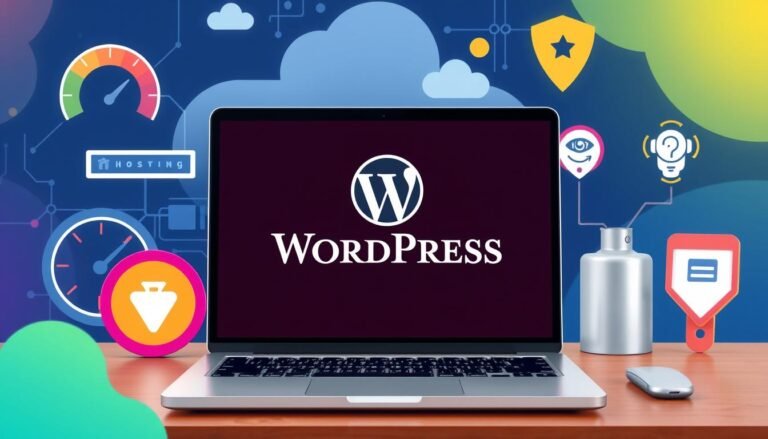What Is A Web Hosting Control Panel And How Does It Work?
A web hosting control panel is an essential tool for website owners and administrators, providing a user-friendly interface to manage hosting settings, files, databases, email accounts, and other crucial aspects of web hosting. Without a control panel, managing a website’s backend would require extensive technical knowledge and command-line expertise.
In this article, we will explore what a web hosting control panel is, how it works, its features, benefits, and popular control panels available in the market.
Understanding Web Hosting Control Panels
What is a Web Hosting Control Panel?
A web hosting control panel is a web-based interface that allows users to manage various aspects of their web hosting service. It simplifies complex server management tasks, making them accessible even to users with limited technical knowledge.
How Does a Web Hosting Control Panel Work?
The control panel serves as a bridge between the user and the web server, providing a graphical interface to manage hosting services. It allows users to:
- Configure domain names and subdomains
- Manage files and directories
- Set up email accounts and forwarders
- Install applications like WordPress
- Monitor website performance and security settings
Key Features of a Web Hosting Control Panel
1. Domain Management
A control panel enables users to manage domains, subdomains, and DNS settings. This includes:
- Adding or removing domains
- Redirecting URLs
- Configuring DNS records (A, CNAME, MX, TXT records)
2. File Management
Users can upload, modify, and organize website files through an in-built file manager without needing FTP access.
3. Email Account Management
Hosting control panels allow users to create and manage email accounts associated with their domain. Key functions include:
- Creating and deleting email accounts
- Setting up email forwarding and autoresponders
- Configuring spam filters and security settings
4. Database Management

Most websites require databases to store information. Control panels provide:
- MySQL and PostgreSQL database management
- phpMyAdmin for database administration
- Database backups and restoration options
5. Security Settings
A web hosting control panel helps secure websites through:
- SSL certificate installation
- Firewall and security settings
- IP blocking and access control
6. Application Installation (One-Click Installers)
Control panels often include auto-installers like Softaculous and Fantastico, enabling users to install applications such as:
- WordPress
- Joomla
- Drupal
- Magento
7. Performance Monitoring and Resource Management
Users can monitor website traffic, server load, and resource usage to optimize website performance.
8. Backup and Restore Options
Backup tools in control panels allow users to create and restore backups of website files, databases, and emails, preventing data loss.
Popular Web Hosting Control Panels
1. cPanel
One of the most widely used control panels, cPanel offers an intuitive interface, rich features, and excellent compatibility with Linux-based hosting servers.
2. Plesk
Plesk is a popular alternative to cPanel, supporting both Windows and Linux hosting. It provides advanced security features and a user-friendly dashboard.
3. DirectAdmin
A lightweight and cost-effective control panel with essential features for managing websites and servers.
4. Webmin
A free and open-source control panel, ideal for advanced users comfortable with Linux server administration.
5. ISPConfig
An open-source hosting control panel that supports multiple servers and is highly customizable.
Benefits of Using a Web Hosting Control Panel
1. User-Friendly Interface
Control panels provide an intuitive interface, making server and website management easier for beginners.
2. Time Efficiency
Automation features such as one-click installs and scheduled backups save time and effort.
3. Enhanced Security

Users can implement security measures like SSL encryption, firewalls, and malware scanning with ease.
4. Improved Performance Monitoring
Resource tracking tools help optimize website performance and server load.
5. Seamless Integration with Third-Party Applications
Many control panels allow easy integration with content management systems (CMS), e-commerce platforms, and analytics tools.
Also Read: cPanel vs Plesk Performance Comparison: Which One Runs Faster?
Conclusion
A web hosting control panel simplifies the complexities of website management, offering tools to handle domains, files, emails, security, and databases efficiently. Whether you are a beginner or an advanced user, choosing the right control panel can significantly impact your web hosting experience. Understanding its features and benefits helps in making an informed decision when selecting a hosting provider or managing your own server.
FAQs
1. Do I need a web hosting control panel?
Yes, unless you have advanced technical skills to manage a web server via command-line tools, a control panel simplifies website management.
2. Which is better, cPanel or Plesk?
Both are excellent choices. cPanel is more popular for Linux hosting, while Plesk supports both Windows and Linux servers.
3. Is there a free web hosting control panel?
Yes, Webmin and ISPConfig are free alternatives, but they may require more technical knowledge to use effectively.
4. Can I change my hosting control panel?
Switching control panels can be complex and may require migration assistance from your hosting provider.
5. Is a control panel necessary for VPS or dedicated hosting?
While not mandatory, a control panel simplifies management tasks for VPS and dedicated hosting users.







